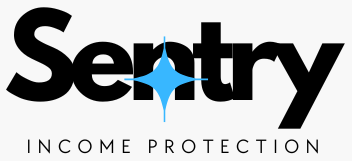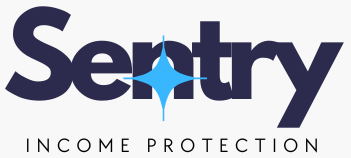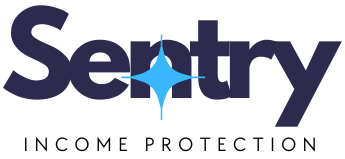Disability Insurance for Self Employed in Dallas TX
Call (469) 905-4422 for a free Disability Insurance quote! Let Sentry Income Protection safeguard your future.
Looking to protect your income as a self-employed professional? Disability insurance can be a lifeline, but understanding your options is key. We’ll break it down clearly. As a trusted independent disability insurance agency, Sentry Income Protection is here to help. Call us at 469-905-4422 we’re happy to chat!
When You ARE the Business
If you own a plumbing company in East Dallas, run a dental practice near SMU, or operate an accounting firm in the Design District, you already know the truth: your business runs on you. Unlike employees at the corporate towers downtown or out at Legacy West, you don't have an HR department managing benefits or a corporate safety net if something goes wrong. When you're self-employed in Dallas, your ability to work isn't just your income, it's your business's lifeline, your employees' paychecks, your lease payments, and your family's security.
Disability insurance replaces a portion of your income if illness or injury prevents you from working. But for self-employed professionals in Dallas, it's more than income replacement, it's business continuity insurance. Whether you're recovering from a back injury that keeps you out of the shop, dealing with a serious illness, or managing a condition that limits your capacity, individual disability insurance can mean the difference between temporary hardship and financial catastrophe.
Why Private Disability Insurance Matters More for the Self-Employed
When you work for yourself, there's no workers' compensation waiting to catch you (unless you've specifically purchased it), no employer-sponsored disability plan, and no paid sick leave. Social Security Disability Insurance exists, but qualifying is notoriously difficult. You must be unable to perform any substantial gainful work, and the process can take months or years.
Private disability insurance is specifically designed to fill this gap, and for self-employed professionals, it offers protection that government programs simply can't match. A good policy typically replaces 50 to 70% of your gross income, with benefits that can continue for years or even until retirement age, depending on your policy structure. Unlike Social Security, private policies can activate with much more practical definitions of disability, especially important for skilled professionals.
For Dallas area business owners, the risk isn't theoretical. According to the Council for Disability Awareness, more than one in four 20 year olds will experience a disability before reaching retirement age. Conditions like back injuries (common for mechanics and contractors), repetitive stress injuries (affecting dentists and surgeons), or even serious illnesses like cancer or heart disease don't discriminate based on your entrepreneurial spirit. The question isn't whether disability could happen, it's whether your business and family could survive it without coverage.
Expect to invest between 1% and 3% of your annual income for quality disability insurance coverage. The exact cost depends on your age, health, occupation, and the specific features you select.
The Solo Operator: Protecting Your Income and Overhead
If you're a solo CPA near NorthPark Center, a consultant working from a home office in Lakewood, or a single chair dentist or Chiropractor in North Dallas, your situation is unique: you are the product. When you can't work, revenue stops immediately. But your expenses? They keep coming.
Your office lease doesn't pause. Your malpractice insurance, software subscriptions, equipment payments, and utilities all continue whether you're seeing clients or recovering from surgery. If you employ even one part-time assistant, you have payroll to consider. For solo practitioners, disability insurance isn't just about replacing your take home pay, it's about covering the overhead that keeps your business viable during recovery.
This is where own occupation disability coverage becomes critical. Standard disability policies define disability as your inability to perform any job for which you're reasonably qualified. Imagine you're a dentist who develops severe carpal tunnel syndrome. You might not be able to perform dental procedures, but an insurance company with an "any-occupation" definition could argue you're still capable of teaching or consulting. You'd receive nothing while your practice sits idle.
An "own-occupation" policy pays benefits if you can't perform the substantial duties of your specific occupation, the work you were doing when you became disabled. For a Dallas dentist, this means if you can't practice dentistry as you did before, you receive benefits, even if you could theoretically do something else. For skilled professionals who've built specialized practices, whether that's endodontics, tax law, or precision automotive repair, this distinction is everything.
Solo operators should also consider "business overhead expense" coverage. This specialized policy reimburses specific business expenses (rent, utilities, employee salaries, equipment leases) during your disability, typically for 12 to 24 months. For a solo practitioner trying to maintain a practice location and staff while recovering, this coverage can be the difference between returning to an intact business and starting over from scratch.
Business Owners with Employees and Partners: Keeping Operations Running
If you own a mechanical shop off Mockingbird Lane, run a multi doctor dental practice in Far North Dallas, or operate a plumbing business with a crew of technicians, your disability creates a different challenge: the business might be able to continue without you, but it needs resources to do so.
Who manages day to day operations if you're out for six months recovering from a serious accident? Can your foreman or office manager handle it, or do you need to hire temporary management? If you're the primary revenue generator, the dentist who does the complex procedures, the CPA who handles the biggest clients, how does the business replace that production? Your disability insurance benefit can fund these solutions: hiring a temporary dentist, bringing in a contract CPA, or paying your master plumber overtime to cover your client work.
For business owners with partners, disability insurance takes on another critical role: funding buy-sell agreements. Let's say you and a partner each own 50% of a successful HVAC business serving the Dallas area. You're both working full-time, drawing salaries, and splitting profits. Then one partner suffers a stroke and can't return to work. Without a plan, you face an impossible situation: the disabled partner still owns half the business but can't contribute, creating tension over compensation, decision making, and eventually succession.
A disability buy-sell agreement, funded by disability insurance, solves this. The policy is structured so that after a specified period (often 12 to 24 months), the disabled partner's ownership can be purchased by the remaining partner(s) using insurance proceeds. The disabled partner receives fair value for their ownership stake, and the active partner gains full control to move the business forward. For Dallas business owners who've built something valuable together, this planning prevents the disability of one partner from destroying what both created.
Business overhead expense insurance works differently for multi person operations. Instead of replacing your personal income, it reimburses fixed business expenses while you're disabled, typically for 12 to 24 months. This coverage keeps the lights on while you recover and potentially allows the practice to continue serving patients with an associate dentist or hygienists handling routine care.
Protecting Your Assets: Loans, Real Estate, and Financial Obligations
Many Dallas area business owners have significant capital invested in their operations. You might have an SBA loan for equipment, a commercial mortgage on your shop building, or a practice acquisition loan for that established dental practice you bought near Preston Center. These obligations don't disappear when you become disabled, but your ability to make payments might.
Disability insurance protects these assets by ensuring you have funds to meet obligations even when you can't work. Without coverage, a business owner might be forced to liquidate business assets, tap retirement accounts (incurring taxes and penalties), or even sell the business under duress at a fraction of its value. A Dallas CPA who's spent 15 years building a practice could see that value evaporate if forced into a fire sale. Disability insurance for self employed people preserves options and protects equity.
Some lenders, particularly for larger commercial loans or practice acquisitions, actually require disability insurance as a condition of financing. They understand that a business owner's health is intrinsically tied to loan repayment capacity. Even when it's not required, having adequate disability coverage makes you a better credit risk and can improve lending terms.
Key Policy Features That Actually Matter
When shopping for disability insurance in Dallas, you'll encounter numerous policy features and riders. Some are essential, others are expensive add-ons that may not fit your situation. Here's what matters most for self-employed professionals:
- Own-Occupation vs. Any-Occupation: This is the most important definition in your policy. Own-occupation means you're considered disabled if you can't perform the material duties of your specific occupation. Any-occupation means you must be unable to work in any job for which you're reasonably suited by education and experience. For professionals with specialized skills, own-occupation is worth the premium difference. For a dentist or specialized contractor, it's non-negotiable.
- Non-Cancelable and Guaranteed Renewable: A non-cancelable policy means the insurance company cannot raise your rates or change your coverage terms as long as you pay premiums. Guaranteed renewable means they must renew your policy but can adjust rates for your entire class of policyholders. Non-cancelable offers maximum protection but costs more. For young, healthy business owners locking in coverage, the extra cost may be worthwhile.
- Benefit Period: This determines how long benefits continue if you remain disabled. Common options include 2 years, 5 years, to age 65, or to age 67. Longer benefit periods cost more but provide more protection. Balance cost against risk tolerance and other resources.
- Elimination Period: This is your waiting period before benefits begin, essentially your deductible measured in time rather than dollars. Common elimination periods are 30, 60, 90, or 180 days. Longer elimination periods significantly reduce premiums. If you have adequate emergency savings to cover 3 to 6 months of expenses, a longer elimination period makes financial sense.
- Partial and Residual Disability Benefits: These provisions pay proportional benefits if you can work part-time or at reduced capacity. For a dentist who can return to work part-time, or a CPA who can handle some clients but not a full load, this feature provides income during the transition back to full capacity. Many policies include this as standard, but verify it's present, it's especially valuable for professionals whose recovery might be gradual.
- Cost of Living Adjustment (COLA): This rider increases your benefit amount annually based on inflation once you're receiving benefits. Without it, your monthly benefit loses purchasing power over time during long-term disabilities. COLA adds to your premium but protects against inflation. For younger business owners purchasing coverage with many working years ahead, it's worth serious consideration.
- Future Increase Option (Guaranteed Insurability): This rider allows you to purchase additional coverage at specified intervals without medical underwriting. For a young business owner whose income will grow significantly, this preserves the option to increase coverage as income grows, even if health issues develop. It's particularly valuable for younger professionals in growth mode.
Common Mistakes to Avoid
- Underinsuring Your Income: Many self-employed individuals insure based on their net profit or what they pay themselves in salary, forgetting that gross revenue drives their business. Consider your revenue replacement needs, what income would allow you to keep the business operational during your disability? You typically can't insure more than 50 to 70% of gross income, but make sure you're maximizing that available coverage.
- Choosing the Wrong Occupation Class: Insurance companies classify occupations by risk level, which dramatically affects pricing. A dentist is typically Class 5 or 6 (lowest risk, best pricing), while a roofing contractor might be Class 2 or 3. Some Dallas business owners mistakenly describe their work in ways that result in incorrect classification. If you're a business owner who no longer does physical work, make sure your application reflects your actual daily duties, not your company's services.
- Waiting Until Health Issues Appear: Disability insurance requires medical underwriting. That minor heart issue, the prediabetes diagnosis, or the back pain you've been managing? These conditions can result in exclusions, rating (higher premiums), or even denial of coverage. The time to get disability insurance is when you're healthy.
- Skipping Professional Guidance: Disability insurance is complex, and policies vary significantly between carriers. Working with an independent insurance broker who specializes in disability coverage for business owners, and who represents multiple carriers, ensures you're comparing real options rather than just what one company offers. Look for advisors who regularly work with professionals in your industry and understand the specific needs of self-employed individuals.
Don't Leave Your Business (and Family) Vulnerable
Building a business in Dallas takes vision, risk, and relentless work. Whether you're serving commercial clients downtown, residential customers throughout Oak Cliff and Lake Highlands, or professional clients near the Galleria, your business is more than a job, it's your legacy, your employees' livelihoods, and your family's security.
The reality is stark: your business needs you healthy, but it also needs a backup plan. Disability insurance isn't an expense, it's a strategic business investment that protects everything you've built. It's the difference between a temporary setback and permanent loss, between maintaining your standard of living and draining savings, between keeping your business intact and watching it dissolve.
For self-employed professionals in Dallas, the question isn't whether you can afford disability insurance. It's whether you can afford to be without it. The policy you secure today, while you're healthy, while business is good, might be the most important business decision you make. Because the one thing your business plan can't account for is you being unable to execute it.
Start by getting quotes from multiple carriers, work with a qualified advisor who understands the self-employed market, and secure coverage that reflects both your current needs and future growth. Your business deserves the same strategic planning for the unexpected that you've put into growing it. Make disability insurance part of that plan.
Call 469-905-4422 for a Free Disability Insurance Quote! We represent all the top carriers and can provide an unbiased evaluation that meets your individual needs.
We specialize in private disability insurance for high-income professionals. Your information is secure and never shared.


